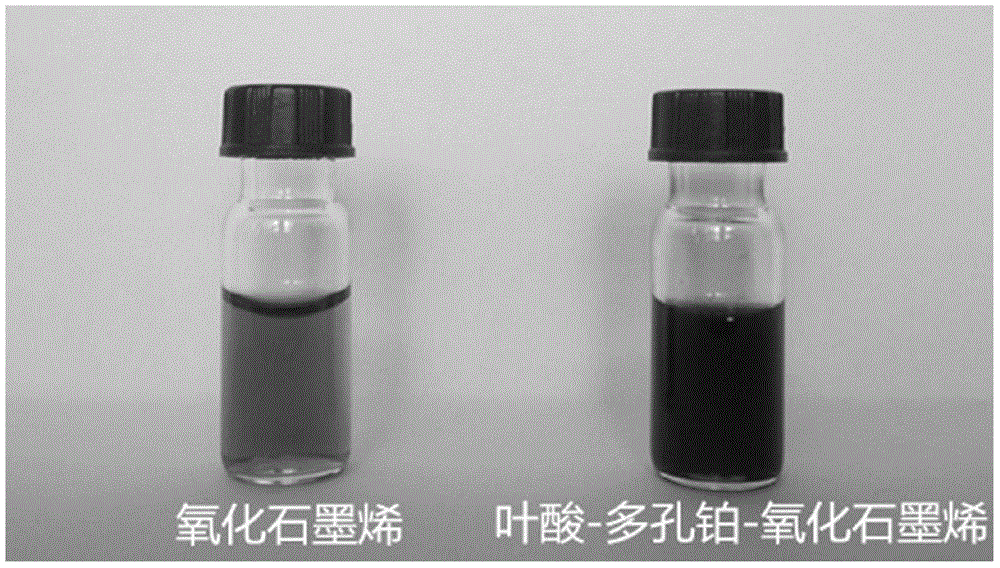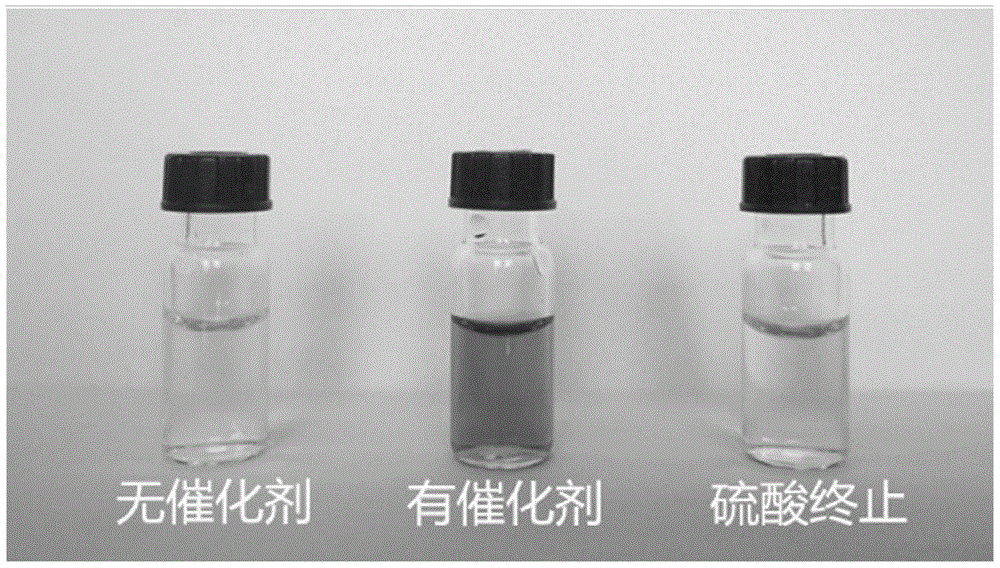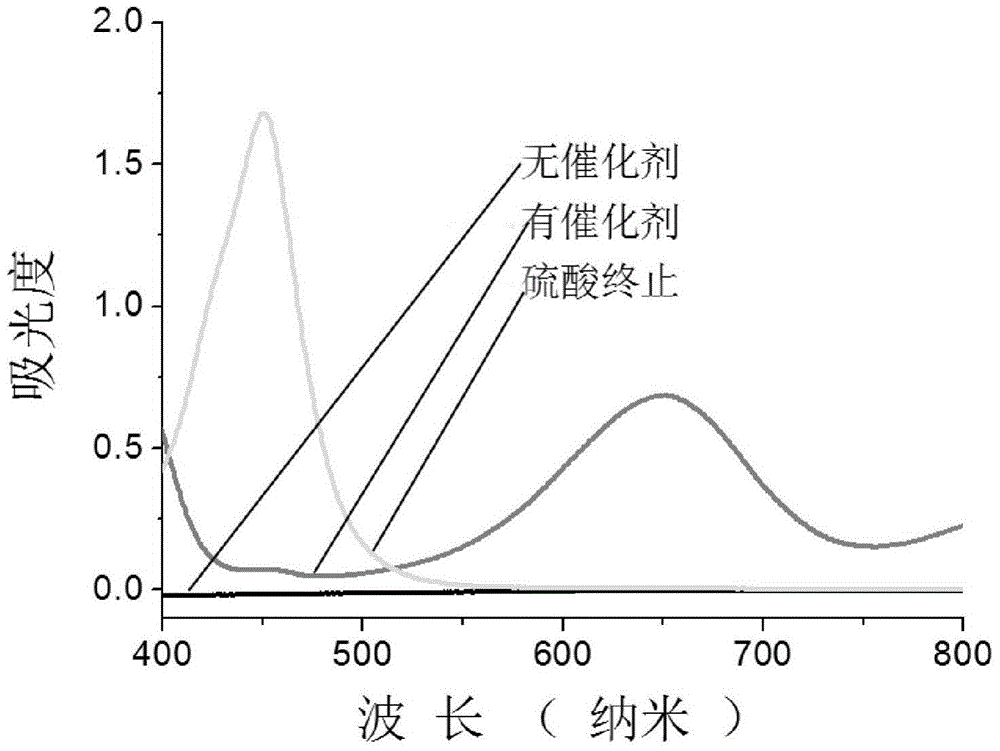Folic acid-porous platinum-graphene oxide composite nano material as well as application thereof in detecting tumor cells
A graphene composite and nanomaterial technology, which is applied in the field of nanotechnology and medical testing, can solve problems such as difficult to achieve detection results, and achieve good peroxidase activity and rapid and sensitive detection effects
- Summary
- Abstract
- Description
- Claims
- Application Information
AI Technical Summary
Problems solved by technology
Method used
Image
Examples
example 1
[0039] Weigh 1.2 g of 325 mesh flake graphite and add it to a mixed solution of 144 mL of concentrated sulfuric acid with a concentration of 18 mol / L and 16 mL of phosphoric acid with a concentration of 15 mol / L. After stirring well, place in an ice bath at 0 °C. Slowly add 7.2 g of potassium permanganate in small amounts to the above mixed solution. After keeping the ice bath at 0°C and magnetic stirring for 3 hours, the obtained dark green suspension was transferred to a warm water bath at 50°C, and the temperature was controlled for 12 hours. The obtained purple-black suspension was slowly added to 160 mL ice-water mixture, and stirred vigorously for 1 hour. Then, 4 mL of 30% (mass concentration) hydrogen peroxide solution was added dropwise to the solution, and the color of the solution changed to bright yellow. The resulting solution was filtered through a G1 sand core funnel (pore size 20-30 microns), the filtrate was centrifuged at 4000 rpm for 30 minutes, and the sup...
example 2
[0041] 160 mg of polyallylamine hydrochloride and 160 mg of potassium hydroxide were sequentially added to 80 mL of 0.5 mg / mL graphene oxide aqueous solution, and the mixture was magnetically stirred in a water bath at 70 °C for 24 hours. The solution was collected and then centrifuged, washed with double distilled water until neutral, and excess polyallylamine hydrochloride and potassium hydroxide were removed. The obtained product was made up to 80 mL with double distilled water, and fully dissolved.
example 3
[0043] 40 mg of folic acid was first dissolved in 16 mL of sodium dihydrogen phosphate-disodium hydrogen phosphate buffer solution (pH 5, 20 mmol / L), and the 0.0227 mmol / L folic acid solution obtained after complete dissolution was mixed with 8 mL of 1-ethyl Base-3-(3-dimethylaminopropyl)-carbodiimide aqueous solution (0.068 mmol / L) and N-hydroxysuccinimide (0.068 mmol / L) mixed aqueous solution were mixed at room temperature in the dark Leave overnight to activate. Then fully mixed with the 80 mL polyallylamine hydrochloride-modified graphene oxide aqueous solution obtained in Example 2, and stirred magnetically at room temperature for 24 hours. After the reaction, the solution was collected and centrifuged by ultrafiltration, washed with double distilled water until neutral, and unbound folic acid and unreacted cross-linking agent were removed. The obtained product was made up to 80 mL with double distilled water, and fully dissolved to obtain a folic acid-graphene oxide aqu...
PUM
| Property | Measurement | Unit |
|---|---|---|
| pore size | aaaaa | aaaaa |
Abstract
Description
Claims
Application Information
 Login to View More
Login to View More - R&D
- Intellectual Property
- Life Sciences
- Materials
- Tech Scout
- Unparalleled Data Quality
- Higher Quality Content
- 60% Fewer Hallucinations
Browse by: Latest US Patents, China's latest patents, Technical Efficacy Thesaurus, Application Domain, Technology Topic, Popular Technical Reports.
© 2025 PatSnap. All rights reserved.Legal|Privacy policy|Modern Slavery Act Transparency Statement|Sitemap|About US| Contact US: help@patsnap.com



